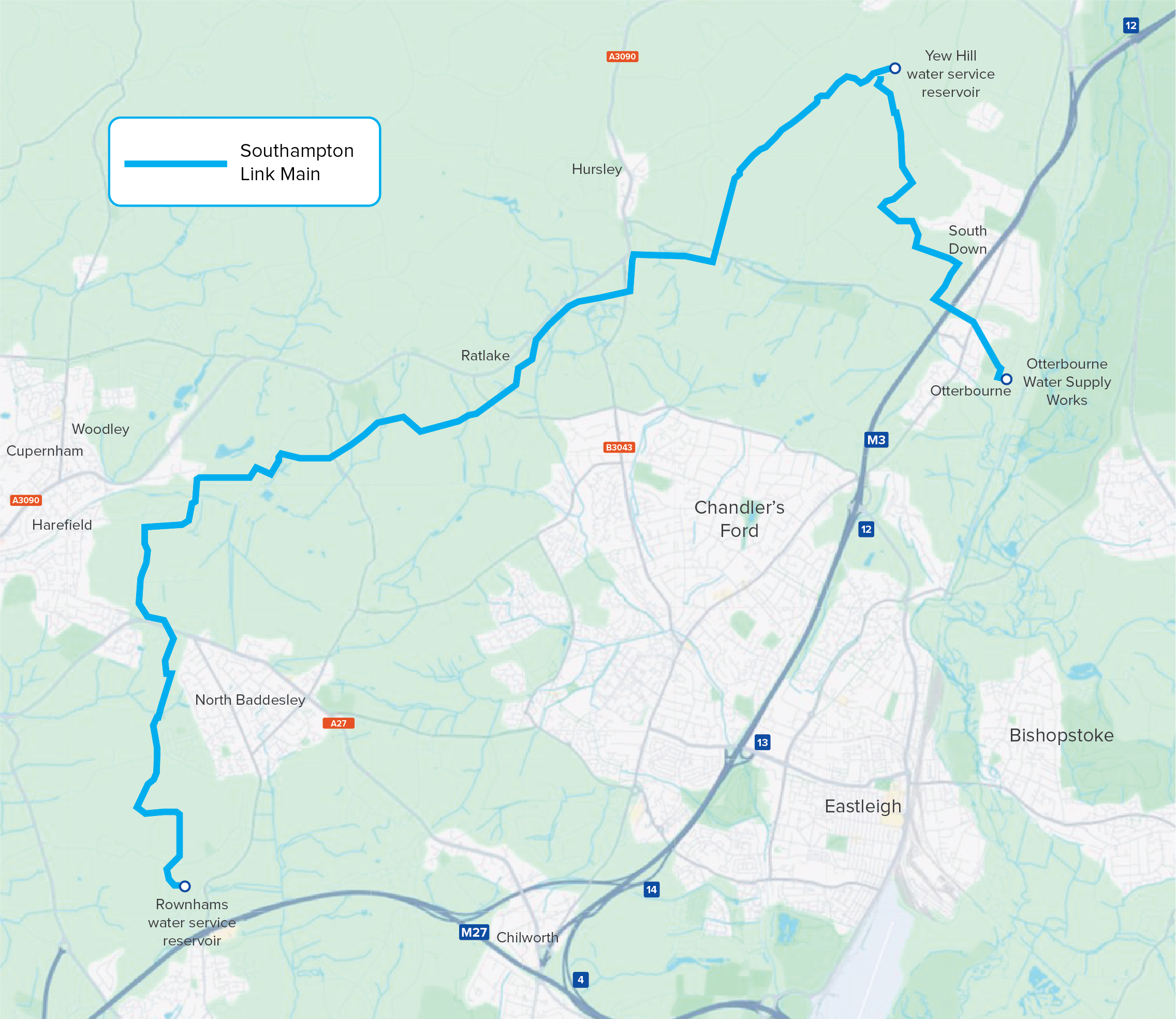What are we doing and why?
In a drought, we need to make sure there is enough water for everyone and for the environment. To do this, we're transforming the way we source, treat and supply water across Hampshire. As part of our ‘Water for Life – Hampshire’ programme we are building a network of new pipelines to link up our key sites and also allow additional transfers of water from neighbouring water companies. The Southampton Link Main is one of these pipelines.
By doing this, we can reduce how much water we take from the River Test and the River Itchen. This will protect and enhance the county’s rare and sensitive chalk streams, while maintaining supplies for our communities and the local economy. As well as meaning greater resilience for the area’s water supplies, the new pipeline will reduce the impact of any burst pipes, mechanical failures or sudden leaps in future demand.
The Southampton Link Main is a large project and, so we plan the work in stages as it is complex. We started construction work in 2025 and anticipate that we’ll complete the project in 2028. The works will be delivered in partnership with MGjv, a joint venture between M Group Water and Galliford Try.

Updates
Construction on the project has started. Most of the pipeline will be laid by digging trenches, installing the pipeline and then backfilling them with earth. However, in some areas, it will be installed by digging tunnels deeper underground to avoid disruption to major roads, railway lines or precious ecological sites.
The route was determined following engagement with local landowners and people who live and work nearby, as well as being informed by environmental and ecological information, surveys and assessment.
Since summer 2024, we have finalised the design for the pipeline and secured the necessary planning permissions and consents. We’ve worked with residents in Otterbourne who are directly impacted by the project.
In late 2024, we invited over 1,600 households to a community drop-in event. At the event our engineers, ecology team, and archaeologists were available to answer questions and share their fascinating discoveries along the pipeline route. Preparation for main construction has already begun, and we’ve taken steps to limit the impact on wildlife and local habitats. We are now preparing to set up working areas along the pipeline route to support construction.
Since summer 2022, we have undertaken desk based and walk over surveys and investigations of potential pipeline routes.
In summer 2023, we conducted several excavations at different locations along the two proposed pipeline routes. Some of these were to explore the potential for buried archaeological remains.
Others enabled us to investigate ground conditions and groundwater levels that will affect how we design and construct the proposed pipeline. As part of this work, you may have seen small teams of people excavating in these areas. The land will be reinstated when the excavations are completed.
The information we gain from this work will help us to refine the proposed pipeline route, and our construction techniques. It will also enable us to assess the potential environmental effects associated with the construction and operation of the pipelines. This information was used as part of a formal submission we will made to Winchester City Council and Test Valley Borough Council in Autumn 2023 to determine whether we need to complete an Environmental Impact Assessment of our proposals.
During 2023 we undertook desk based and walkover surveys and investigations of the potential pipeline route.
We conducted exploratory excavations at various locations along the proposed pipeline route. Some of these excavations explored the potential for buried archaeological remains, recording and preserving those uncovered.
Others enabled us to confirm ground conditions and groundwater levels that will affect how we finalise the design and construction of the proposed pipeline. As part of this work, you may have seen small teams of people excavating in these areas. The land will be reinstated when the excavations are completed.
